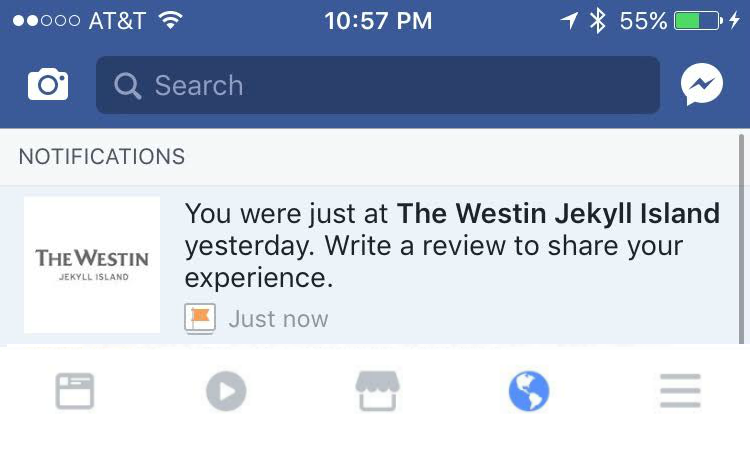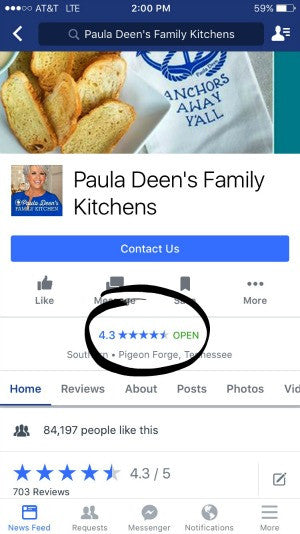Hint: Don’t do this!
It’s no longer enough for an organization to create a basic website and call it a day. In today’s digital world, if your business isn’t active on social media, you’re missing an essential marketing component.
The same goes for customer reviews. In fact, according to a recent survey, while 35 percent of consumers say that one negative review can convince them not to purchase a product, an overwhelming 92 percent of consumers will hesitate to buy if there are no reviews at all. This means that having zero customer reviews is actually a much bigger problem than having one negative review among the positive ones.
Even the best companies receive negative reviews, and they know there’s a right way to go about addressing customer complaints. Lots of companies struggle with how to deal with negative feedback on Yelp, but that’s just one platform. Many companies now rely on their Facebook pages for business listings, ad promotion and customer reviews. Because it’s a social site that’s fraught with oversharing, you need to be especially attentive when dealing with unfavorable feedback. If you aren’t careful, you could easily be swept up in a commenting storm that has serious consequences for your brand’s reputation.
The most famous example: Amy’s Baking Company
After Scottsdale, Arizona, restaurant Amy’s Baking Company appeared on an episode of Gordon Ramsay’s “Kitchen Nightmares,” the owners took to the company Facebook page to defend themselves from an onslaught of negative comments. On the show, Ramsay actually gave up on the couple and walked off for the first time in the history of the series, deeming them too difficult to work with. After the episode aired, the owners proved that they were not, in fact, victims of clever reality TV editing. Their social media updates quickly escalated to the point where they verbally attacked commenters, threatened legal action against them, and then – like so many social media cautionary tales before them – claimed their page had been hacked.
Amy’s Baking Company was already in trouble; it had garnered dozens of negative reviews on Yelp and Google and further unsavory details emerged about the couple after their “Kitchen Nightmares” episode aired. Their infamous Facebook meltdown pushed things over the edge. The company eventually closed its doors.
What happened with Amy’s Baking Company is an over-the-top example, and it certainly doesn’t represent the norm. But it’s a lesson every business should learn about how social media practices impact customer loyalty and brand image.
The number one rule of online reviews: You should always respond to negative Facebook posts, comments and reviews. By choosing to stay silent, you allow the consumer to have the last word and give the impression that you simply want the problem to go away. You should also fight the temptation to remove negative posts, which could actually backfire, as consumers will be suspicious if every review is overwhelmingly positive.
Use caution when responding
In the same way that you should never write an email while angry, you shouldn’t respond to a negative review if you’re feeling angry or hurt. If you need to, take a few hours to calm down before responding. Be respectful of the customer’s opinions and respond in a way that shows you want to make it right. When you respond to negative reviews with patience and sincerity, you send a clear signal to your other customers.
Dishonest reviews
What about the times when a customer is actually dishonest in a review? While your first instinct may be to aggressively defend your reputation, don’t. Apologize for the customer’s experience, point out any false details without addressing blame or becoming defensive and make every attempt to make it right. Even if there’s nothing you can do to change a customer’s mind in a particular circumstance, other customers will see how well you handled the situation.
Above all, you shouldn’t take personal offense to Facebook comments and reviews, but you should take them seriously. By responding in a prompt and thoughtful manner, you can turn a bad experience into a positive impression.
Consumers expect businesses to be active on social media, and they use customer comments and reviews to help them make buying decisions. Every business should take steps to generate customer reviews and carefully respond to negative reviews. (It’s a nice touch to respond to positive reviews – a simple “thank you” will do.) A reputation management tool can help you keep track of your online customer reviews and your all-important online reputation.
Watch this free demonstration video to see how ReviewMaxer software works and how it improves your online reputation.
Photo credit: Pablo
Written by: Matt Harding
Matt Harding is the founder and creative director at Fan & Fuel in Carlsbad, CA. The design and digital strategy group creates branding, e-commerce, social media and digital marketing solutions to connect audiences in the manufacturing, service, retail and lifestyle trend markets.





